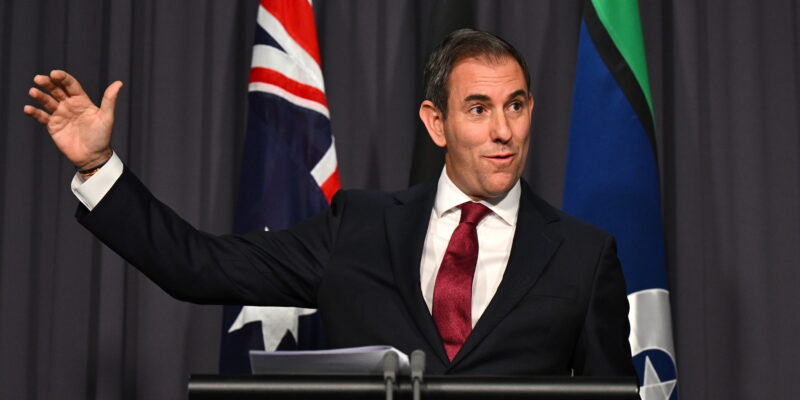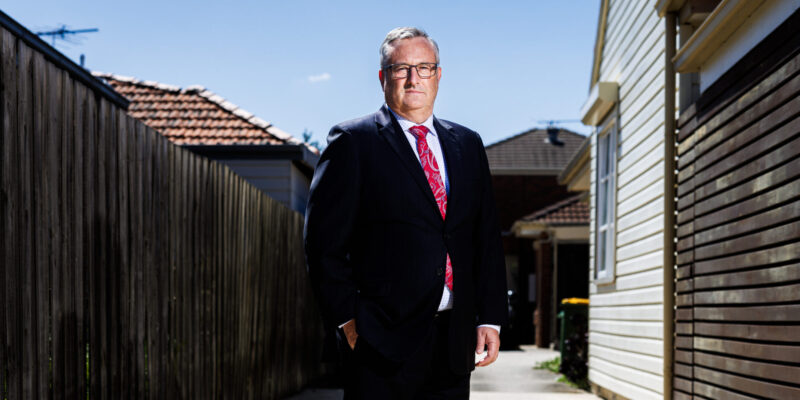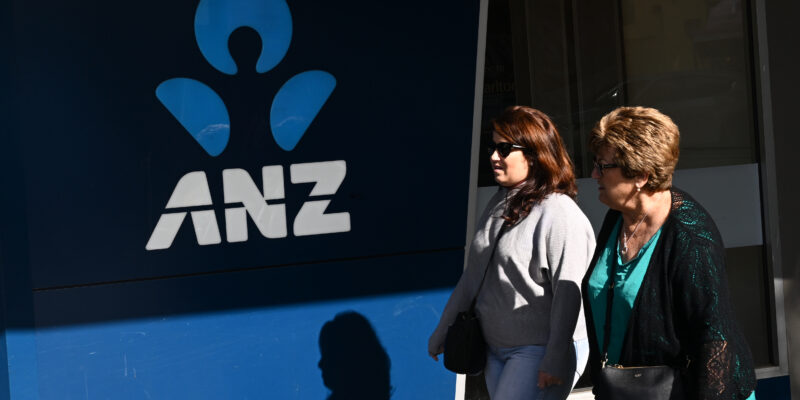Australia’s property market set for boost due to tax and legal changes
Expert analysis of the law and tax changes in play from today with those at the coal face giving us the reality behind stamp duty reform, new tenancy laws and the new super tax on balances over $3 million.

ACTIVITY in Australia’s property market is set to ramp up in the new financial year thanks to a range of tax and legal changes set to take effect across the country, property experts say.
Nationally, a key highlight looking ahead is the re-elected Labor government seeking to pass laws to effectively tax unrealised capital gains.
There’s also a looming extension of the government’s First Home Guarantee, which allows eligible first-home buyers to purchase a home with a deposit as low as five percent.
Meanwhile, in Victoria changes to stamp duty will see it slashed for off-the-plan apartments, units and townhouses for another 12 months, and across the border in NSW more tenancy reforms – aimed to give tenants greater protections – commence.

While population growth, tight rental markets, and the long-standing issue of housing undersupply remain the key market drivers, especially in capitals Melbourne, Sydney, and Brisbane, experts say the looming tax and law changes will assist in buoying market activity.
Unrealised Gains Tax Proposal
Robyn Jacobson, senior advocate at The Tax Institute, Australia’s leading forum for the nation’s tax community, highlighted the potential impact on the property transactions of the move to tax unrealised gains on superannuation balances over $3 million.

There has been speculation that well-off retirees across the country have started to sell off assets and restructure investment portfolios to try and avoid the proposed changes.
She said it “could have some effect on housing supply where property is held in superannuation, especially now that Labor has retained Government and only needs the Greens’ support in the Senate to pass new law.”
Up to 50,000 SMSF members in Australia could be impacted by the overhaul, according to University of Adelaide research into the proposal.
“The Tax Institute does not support taxing unrealised gains from a policy standpoint. Doing so sets a dangerous precedent of taxing gains that may never be realised,” Jacobson said, labelling the measure as “inherently unfair”.
“A tax on unrealised gains is a tax on profit you don’t have yet, and may never have. People over the $3 million threshold may be forced to sell large assets – including property – to foot the bill for tax on unrealised gain,” she added.
“The $3 million threshold is not proposed to be indexed or subject to regular review, which means it will suffer from bracket creep, and over time, more and more taxpayers will be impacted.”
First Home Guarantee Expansion
At a national level, there’s also the government’s promised enabling of all Australian first home buyers to purchase a property with a 5 percent deposit, in what is an extension of the existing New Home Guarantee scheme.
The change, a key election pledge, will allow more borrowers to avoid costly lenders mortgage insurance, removing the income caps of the current program. It’s one of several key planks in the government’s commitment to build 1.2 million new homes in five years.
Although its timing has not yet been confirmed, Joseph Daoud, an independent economist and founder of Sydney-based It’s Simple Finance, said “ongoing first home buyer schemes and stamp duty relief in some states are a win” for first home buyers due to it resulting in “less upfront cost”.
“It means it’s easier to get into that first home,” he said, adding that “first home buyers are getting some help here, paired with the recent interest rate cuts, our first home buyers will have a lot more money and a higher capacity to borrow, and that will allow some buyers to enter the market who otherwise wouldn’t have been able to afford it”.

However, he cautioned that for would-be first home buyers, higher demand for properties driven in part by recent federal government tax relief could undercut the measure.
He warned that it was possible that “first home buyers may find themselves competing with other buyers and investors for the same properties”.
“Price growth may outpace the benefits they get from these tax changes. So, while it’s a step in the right direction, it’s not a game-changer unless we address supply shortages.”
Impact of Stage 3 Tax Cuts
Elaborating, he said it was likely that the government’s stage 3 tax cuts, which took effect in July 2024, were set to have “a strong influence on housing demand” into next financial year.
“When you give people more disposable income, they have more borrowing power. In simple terms: higher take home pay will always equal larger loan sizes, which means buyers can afford to spend more on property and the banks will always be happy if they’re in higher demand,” Daoud said.
“When more people can borrow, demand always goes up and as we all know our country doesn’t have a property demand issue, but rather a supply one.”
Jacobson was more circumspect on the flow on effects of the tax cuts into FY26.
She said for most people, any financial benefits of last year’s personal income tax cuts “have more of less been absorbed by rising cost of living pressures”.
Further tax rate reductions announced in this year’s federal budget, which became law before the election, do not take effect until 1 July 2026 and 1 July 2027,” she added.
“They’re a long way off and for many taxpayers, will amount to around $5 a week extra in their pockets. That’s not going to make much of a dent in saving for a home deposit or paying off a home loan these days.”
Victoria Stamp Duty Concession
In Victoria, the property market will get a lift from state government action on stamp duty.

The Labor government this month announced it would invest $61 million on a year-long extension of an existing off-the-plan stamp duty concession aimed at making it faster and cheaper for industry to build new homes targeted at young people.
Set to run until October 2026, the tax break is open to anyone buying an eligible apartment, unit or townhouse off-the-plan and does not have price caps meaning it is available for eligible properties of any value.
Since it started in October 2024, the average buyer has saved $24,517 on a property transaction, claims the government, which expects it to support around 5000 Victorians get on the property ladder.
The Tax Institute’s Jacobson backed stamp duty changes, saying “in general, stamp duty is an inefficient and inequitable tax”.
“It discourages the transfer of property, making it hard for families to upsize or downsize to better suit their circumstances,” the Melbourne-based expert said.
“It also restricts mobility for people to relocate, which can have significant flow-on effects including the creation of significant barriers to workplace mobility.
“People are potentially deterred from taking on new job opportunities that would require them to move, given the significant extra costs.”
NSW Tenancy Reforms
In neighbouring NSW, the property market is getting a shakeup from tenancy law changes. The new regime, aimed at strengthening protections for renters, requires landlords to provide a reason to end a lease and ending so-called “no grounds” terminations.
It also makes it easier to keep a pet in a rental home, curbs rent increases to once per year, bans extra fees at the start of a tenancy, and ensures tenants can pay rent by bank transfer.
From July, NSW Fair Trading will collect information about reasons a tenancy has ended, with landlord obliged to provide this reason when releasing a rental bond.
A new rental taskforce has been created within Fair Trading, with dedicated inspectors and compliance officers whose mandate is to stop breaches of the rental reforms.
Jo Natoli, founder of property management agency The Rental Specialists and board director at industry body Real Estate Institute of NSW, predicted the new laws would prompt thousands of investment properties to exit the market.
“If you have a look at Victoria for example, when they had their legislative changes go through, they lost around 24,000 properties off the rental market, which put even more strain on the rental market,” Natoli said.

“We are expecting something similar to take place here in NSW. In Victoria most of the properties that came off were sold.”
She said, if the Victorian experience was replicated in NSW, there would be upward pressure on rental prices as landlords were forced to take supply offline.
According to Natoli, it was becoming increasingly difficult to invest in property as a landlord given diminishing rights of owners to their property.
“When you have a look at some of the changes to the legislation that relate to terminations for example, it’s very difficult to recover possession of your property unless you have a particular circumstance,” she said.
“We had the ability to terminate a contract because the contract was coming to its expiry date, but now we have a situation in NSW where a contract does not have an expiry date.
“The fixed term lease has a start date and an end date but when the end date comes around I can’t ask the tenant to leave unless certain other circumstances arise in my life.”
With no grounds evictions now unlawful, landlords must have a valid legal reason with evidence, to evict tenants such as renovations or a change in the use of the premises.
The change followed accounts of the emotional toll on renters due to no grounds evictions, and an effort by the state government to provide tenants with more secure housing.
However, REINSW, the peak body for the state’s real estate agents, maintains the change will worsen the situation for renters, especially in Sydney where the group says the vacancy rate hit just 1.6 percent in April, down from 2 percent in March.
What’s more, it says data shows the number of new loans to investors in NSW fell by more than 2,500 in the March quarter – a worrying sign for the period ahead.
Natoli said given more property transactions were likely as investors sold properties, the state’s conveyancers could “be the beneficiaries of a more buoyant sales market”.
“That’d be good for them,” she said of the laws’ impact on conveyancers, while saying that they pushed investors away from investing in residential property and towards commercial.
“I can go an invest in commercial tomorrow and have none of these issues.”
Marcus Denning, principal of law firm Denning Legal, which specialises in property and construction law, echoed Natoli’s comments. He said that some landlords were review their long-term rental strategies in the wake of the tenancy law reforms. According to the lawyer, some clients were already deciding to sell or rent out their homes using Airbnb, hoping to escape the extra regulations.

“The outcomes of these decisions may reduce the number of available rentals and cause prices to increase for tenants who are already struggling,” he said.
“Moreover, I anticipate more discussions about the best times to pay capital gains tax, alterations in negative gearing and the risks involved with property trusts.
“If the responsibilities of landlords rise under new laws, people may invest their funds differently. As far as I am concerned, these updates will transform contracts and gradually influence the way people invest.”






